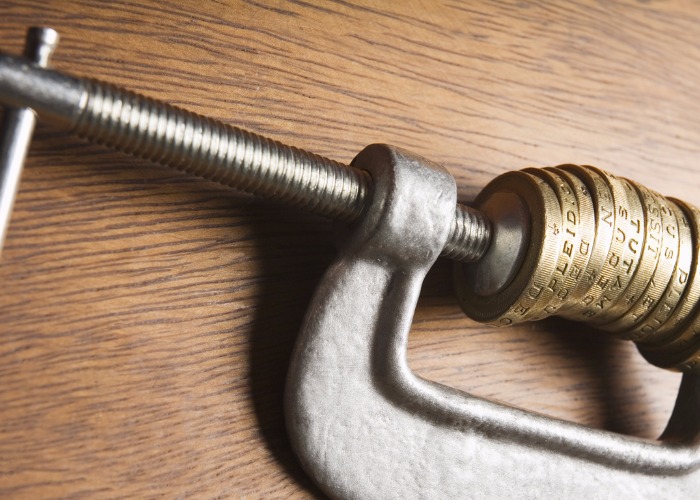Cash risk: inflation 'set to outstrip all savings accounts'

Saving rates are low, but inflation is expected to soar to 3.4%. That means you run an increasing risk of losing out if you keep your money in cash.
For decades cash has been considered a safe haven asset class for investors.
Those of us who don’t want to risk losing capital keep our money in savings accounts, and even the most gung-ho investors usually keep part of their portfolio in cash for safety.
But just how safe is cash?
Money sat in a bank or building society savings account should be fairly safe from shrinking, on the face of it.
It is highly unlikely that your bank will go bust and, if your money is covered by the Financial Services Compensation Scheme, you would get up to £85,000 back even if your bank did collapse.
Win £500 every week! Enter the loveMONEY prize draw
Hidden threat to your cash
However, just because you check your bank account and your balance is staying the same, or slowly rising thanks to interest, doesn’t mean your money is free from risk.
If inflation is gradually pushing up the price of goods, and with it the price of living, and your money isn’t growing at the same pace then it is slowly shrinking in terms of purchasing power.
For example, you have £1,000 in the bank that you plan to use for a holiday in five years' time.
The interest rate on your savings is 1%. So, in five years time you’ll have £1,050.
But, inflation is currently 2.3% (CPI). That means in two years time a £1,000 holiday will cost around £1,121 assuming inflation remains the same – it is expected to increase further.
So, by leaving your money in ‘risk-free’ cash you are running the risk of not having enough to pay for the holiday.
Worryingly, the threat posed by inflation is likely to get even worse: the National Institute of Economic & Social Research, an influential thinktank, recently stated it expects inflation to hit 3.4% later this year.
So holding cash, or at least too much cash, can be a costly mistake.
Earn up to 3% from your current account: compare deals with loveMONEY
What should you do about it?
This inflation risk means many financial advisors are expecting their clients attitude to cash as a safe haven to change.
A recent survey by Investec Wealth & Investment has found that 70% of financial advisors think their clients are going to start switching their capital out of cash and into other asset classes.
 “Whilst interest rates had remained at historic lows for eight consecutive years alongside negligible rates of inflation, cash has retained its reputation as a safe it rather unexciting asset class,” says Mark Stevens, head of intermediary services at Investec Wealth & Investment.
“Whilst interest rates had remained at historic lows for eight consecutive years alongside negligible rates of inflation, cash has retained its reputation as a safe it rather unexciting asset class,” says Mark Stevens, head of intermediary services at Investec Wealth & Investment.
“However, with inflation rising significantly in recent months, many advisers believe their clients’ patience with cash will start to wear thin as they see their deposits shrinking in real terms.”
Since the Brexit referendum the average interest rate on a cash Isa has halved from 0.87% to 0.43%.
But, inflation has leapt from 0.3% to 2.3% over the past year. So, for your money to continuing growing in real terms – so it can still buy the same things – you need a better interest rate.
Over the past year the FTSE 100 has grown by around 22%, showing that taking a bit more risk could deliver the returns people need as inflation rises.
“It’s likely that clients become more receptive to moving higher up the risk ladder in order to generate positive returns,” adds Stevens.
Interested in buying and selling shares? Visit the loveMONEY investment centre to view your options.
Read more on loveMONEY:
Common investing mistakes we keep making
Comments
Be the first to comment
Do you want to comment on this article? You need to be signed in for this feature